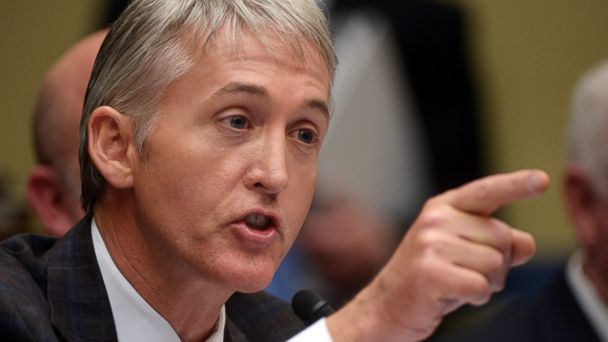Boehner Taps Gowdy to Head Benghazi Probe as Dems Express Doubt
House Democrats and the White House are sending signals that they may not participate on a new select committee to investigate the Benghazi terrorist attack on Sept. 11, 2012, as House Speaker John Boehner puts the finishing touches on the panel.
Boehner today tapped Rep. Trey Gowdy, whom he described "as dogged, focused, and serious-minded as they come," to chair the committee, which he hinted will have full subpoena power to call witnesses and obtain documents.
"With four of our countrymen killed at the hands of terrorists, the American people want answers, accountability, and justice," Boehner, R-Ohio, stated. "I know [Gowdy] shares my commitment to get to the bottom of this tragedy and will not tolerate any stonewalling from the Obama administration."
But the key question remains whether Democrats will even participate in the special investigation.
"We haven't seen the language of what they're talking about," House Democratic Whip Steny Hoyer, D-Md., told reporters this afternoon. "We think this is a political not a substantive effort."
The White House expressed similar reservations. "We have always cooperated with legitimate oversight," White House Press Secretary Jay Carney explained at the daily briefing today. "I think if you look at even what some Republicans have said, it certainly casts doubt on the legitimacy of an effort that is so partisan in nature."
Carney accused Republicans of trying to politicize the tragedy, saying the new House select committee investigation "perpetuates a conspiracy theory without a conspiracy."
"One thing this Congress is not short on is investigations into what happened before, during and after the attacks in Benghazi," he said. "Seven separate congressional committees - investigations, rather - have been looking at this since 2012."
Gowdy, one of the administration's fiercest critics regarding its handling of the Benghazi tragedy, said he is "honored" to be selected to chair the investigation, which he stressed should be "apolitical."
"Facts are neither red nor blue," Gowdy, R-S.C., wrote in a statement. "Our fellow citizens are full well capable of processing the truth about the attacks and aftermath, and most assuredly entitled to hear it."

(Photo Credit: Washington Post/Getty Images)
If Democrats decide to appoint members to the select committee, the responsibility would fall to House Minority Leader Nancy Pelosi, whose office refuses to reveal what she might do.
"We have not received any information about how the committee would be composed, especially the ratio, from the House Republican leadership," Pelosi spokesman Drew Hammill wrote in an email.
Hoyer said he believes the probe is "completely unnecessary" but indicated that if Republicans want to conduct a legitimate probe, the panel should be equally comprised of Republicans and Democrats. A senior aide to the speaker said Boehner will set the details of the select committee later this week and appoint the rest of its Republicans.
Nevertheless, Hoyer said he will oppose a floor vote expected later this week in the House to create the select committee.
"I will [vote no] and I think a large number, I think the leadership will be opposed to it for the most part," Hoyer said, adding that he had not personally spoken to each of his colleagues in the House Democratic leadership. "We will urge members to vote no on it."
An email from National Security Council communications adviser Ben Rhodes surfaced last week that coached then-U.S. Ambassador to the United Nations Susan Rice's round of interviews "to show that these protests were rooted in an Internet video, and not a broader failure of policy."
The video Rhodes referenced was an anti-Muslim YouTube video that sparked widespread protests across the Muslim world. The document also shows the White House advised Rice that the Benghazi attack was "spontaneously inspired" by protests at the U.S. embassy in Egypt that were motivated by the anti-Muslim video.
Hoyer, who said he has not spoken to anyone at the White House about whipping up Democratic opposition, said assertions that those additional emails create new questions regarding a smoking gun are "baloney."
"There's no smoke there. There's no fire," Hoyer said. "It would have been much better had they included [the Rhodes memo] in the initial documents, [but] whether it was subpoenaed, covered by the subpoena or covered by the FOIA, really it does make little difference in terms of the substance of the memo."